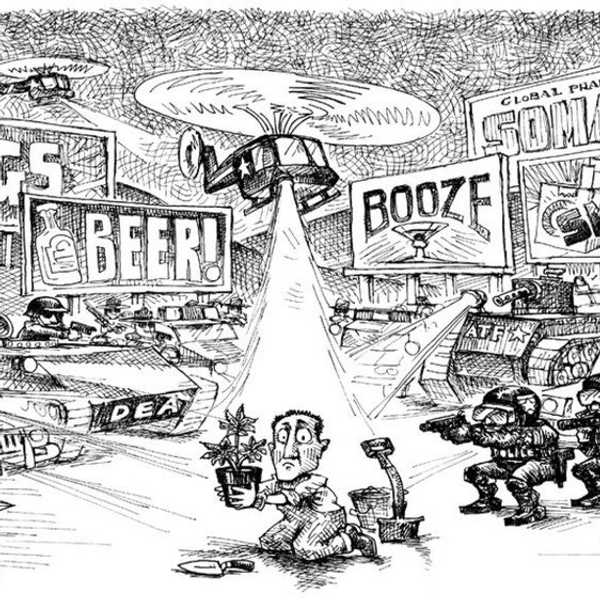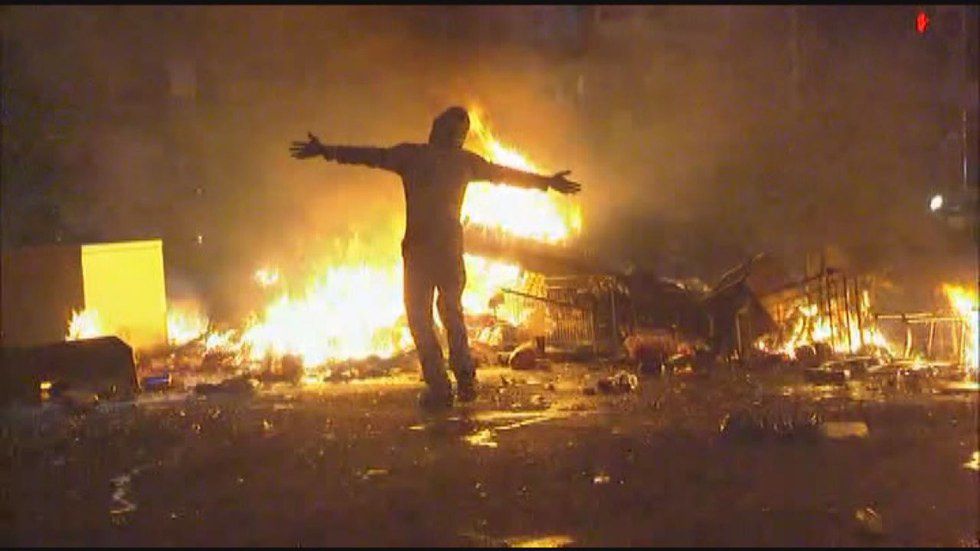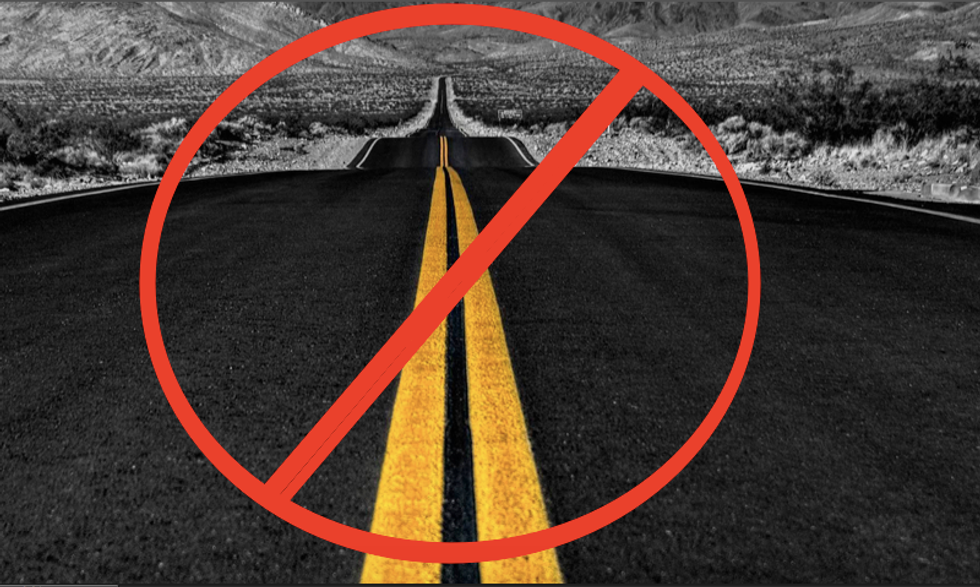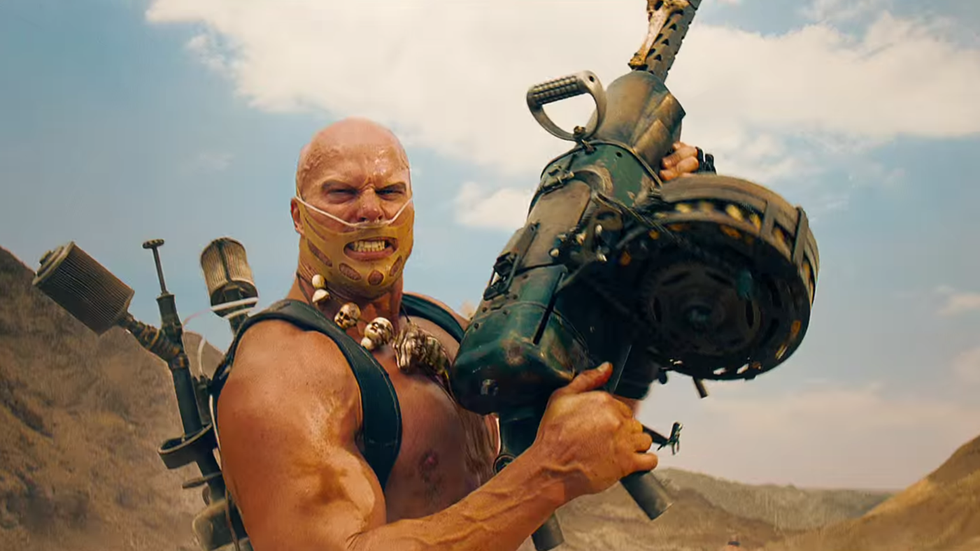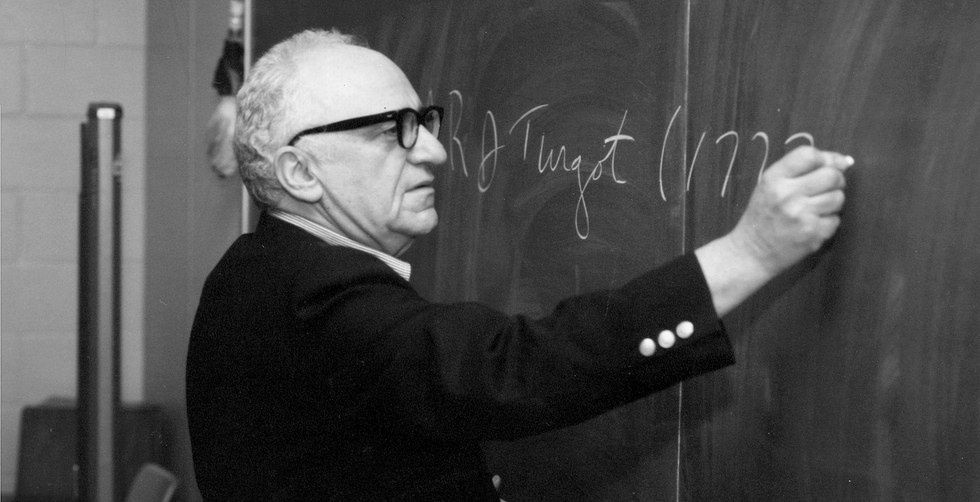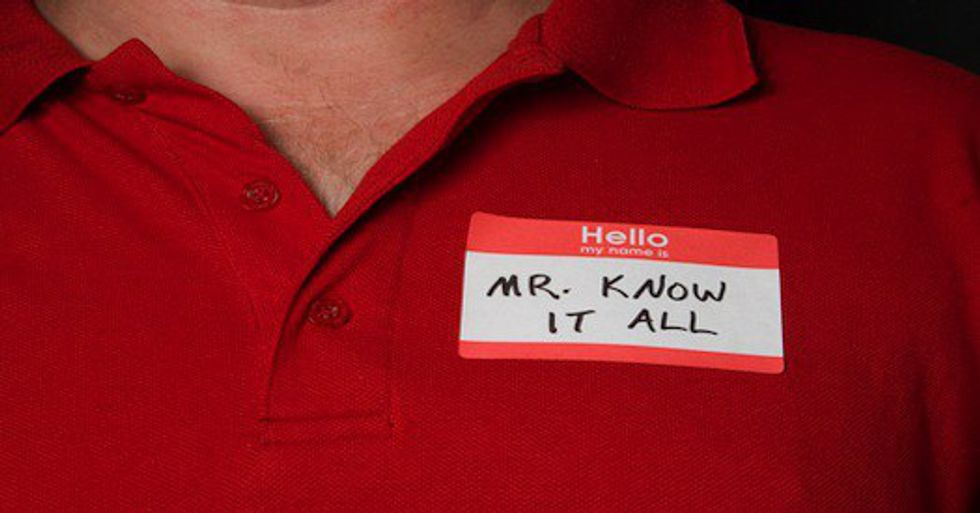Many of the assumptions people make about anarchists are entirely fallacious. I'd like to clear some of that stuff up.
Disclaimer: This article is primarily written from the anarcho-capitalist (free market anarchist) perspective – the most common flavor of anarchism - and does not necessarily represent the views of anarcho-communists, anarcho-syndicalists, or many of the other ideologies found within the anti-government community. Absolutely no disrespect is intended towards those schools of thought.
1. "Anarchists want chaos and mayhem!"
You got me, I am a bloodthirsty bandit bent on destruction and havoc. I want to watch the world burn, and I want the children to suffer, mwuhahahahaaa!
No, we most certainly do not want chaos and mayhem. Most anarchists, myself included, find that the concentration of coercive authority, service monopolization and wealth reallocation – all aspects of government - are the source of most of the chaos, mayhem, violence, poverty and turmoil in our society. We find that without government, there would be far less ability, opportunity, and incentive for people to commit crimes against one another. We picture a government-free society as a more peaceful, orderly and prosperous one. I’ll delve further into this momentarily.
2. "Anarchists are against roads and schools."
Boy, I sure do hate roads. They're very large and sexually intimidating.
Roads ain’t going anywhere, government or not. If roads or schools are needed, then private companies will build roads and schools. Supply and demand, baby. Where there is a profitable will, there is a profitable way. The means to travel is in oh-so-high demand. The roads could be funded any number of ways, such as by drivers paying directly for road membership, or perhaps advertisers putting up billboards, or even just the businesses that are on each road. For any service a small group of political rulers can provide, or rather pay others to provide with money they stole from you; the market ingenuity of all of mankind is most likely going to provide a solution that better meets the consumer’s needs, in the name competitive profiteering. Doesn’t matter if it’s roads, schools, firefighters, public safety, emergency services, or whatever. The more needed the service is, the better the quality and pricing of that service will be provided by the competitive market.
3. "In a nation of anarchy, nothing stops people from robbing, raping and murdering other people."
Oh come on, chill out, stop oppressing me with your anti-murderer discrimination.
Truthfully, nothing seems to be effectively stopping violence now; as indicated by the fact that violence is everywhere we look. Violence is likely more omnipotent now than it would be naturally because our prisons are like crime schools, our government’s drug war turns millions into criminals, and our state-suppressed job market creates financial and cultural desperation. The current system is ineffective; so why not think outside the box to find a new, more effective solution – or perhaps a bunch of them?
Why do we have most services, such as pizza delivery? Is it because we all have money forcibly taken from us to fund a big centralized pizza company? No, of course not, that would be silly. Pizza shops make pizza – a service that isn’t even a basic necessity – because people often want it, and where there is a want, there is a buck to be made. Where there is a need, there are a LOT of bucks to be made. Anarchists believe that without government, and the security of society being competitive and accountable to the people, criminals would actually have to think twice before imposing on somebody else. There’s a zillion ways this could work. Perhaps you sign up for a crime protection company that you can call whenever you’re in danger. Perhaps your neighborhood’s security patrol is funded by your rent. Perhaps the private roads keep themselves patrolled because nobody wants to drive on unsafe roads – rendering security a profitable investment. I don’t know, I’m not the grand-planner of society, but it stands to reason that the collective idea-pools of all of society’s innovators and consumer-demands are going to provide better solutions than a central gang of politicians funding their ideas simply by taking money from you by force – with no incentive to innovate or save. With government, you have pretty much one choice in who is protecting your neighborhood, whereas without government, you have unlimited choices to pick from. That generally produces a better product at a lower price.
4. "Without government, major corporations would take charge."
I’m picturing Ronald McDonald on a podium surrounded by secret service, declaring a war on vegans, executing the Burger King as the McAudience is applauding and lovin’ it. Yeah, that’s what we want.
Without government, the consumer is in charge. Big major corporations practically NEED government to retain cronyistic dominance over the small business sector. Without their weapon of government to pass the laws, tax statutes, and regulations that the corporate “elite class” needs, nothing is stopping the small-business sector from absorbing the entire consumer base AND employee supply. For a major corporation to stay wealthy without a government, that corporation would have to provide superior products at superior prices in comparison to its competitors. In such a case, no harm no foul. For a corporation to effectively dominate the population by force, one of 2 things would have to happen: that corporation would have to have more money than everybody else put together, or the people would need to see the corporation as a legitimate authority. The former is pretty much impossible without a state, and the latter generally only applies to religions and governments. The idea that McDonalds can enslave you is absurd because nobody would see it as legitimate and accept Ronald's authority.
5. "Anarchists are violent.”
Say it to my face and I’ll have you arrested & executed.
Are we violent? News to me. Most anarchists I’ve met are SO uncompromisingly peaceful that they find taxation - taking money under threat of arrest - to be too violent to be considered tolerable in a civilized society. At the core of anarchism is the Non-Aggression Principle; the idea that no person should initiate force against the body or property of another. Taxation is theft, and we're against all forms of theft.
6. "Anarchists are on drugs."
This one can sometimes have a tint of truth to it. Sure, many of us get high from time to time, just like how folks from pretty much any other community may also get high from time to time. It does make sense though, that the sort of people that no longer believe what they were taught about government, would also be skeptical about the “all drugs are evil” campaign.
Many of us are experimenters, with all things in life, and we stick to what works. Logically, anarchism works for us. For many, marijuana – for instance - may also work, whether medicinally or just to mellow out after a long day of working and political ranting. Many other anarchists are completely clean and serene, detesting all drug use. Anarchism attracts thinkers from all walks of life. That said, the idea that we are all – or even mostly - a bunch of high burnouts, is entirely false.
7. "Anarchists aren't serious, they just don't know anything about politics."
This one just couldn't be further from accurate.
Anarchists, of all people, tend to be some of the most politically educated – and often obsessed - people you'll ever meet, and we are dead serious about the future of humanity. That's why we're anarchists; because we see the patterns of history and we see government objectively for what it is; a violent, monopolistic, for-profit mafia, rather than this collective “we” deity of “society” that we’ve all been taught – mostly by the government school system – to see it as. Ask an anarchist about any political issue; odds are that they can rant about it for hours – and they will.
8. "Nobody would protect us from foreign invaders."
Yeah, we all base our entire ideology on weakness and defenselessness. Brilliant.
Nah. In a stateless society, even more people would probably be protecting us, doing a competitively better job at it, as explained in questions 3 and 7. Instead of one monopolistic military of several million troops funded by theft, there would be no limit to the number of militant protection services, funded solely by customer satisfaction. For one to take over, they’d have to go to war with thousands of other companies. Defense is profitable because people want to be safe. War, on the other hand, is only profitable when you have tax streams to exploit. Our military defense would improve, and our personal defense would too. Just try invading a country in which 318 million people can buy machine guns from the grocery store with no screening process.
Besides, the main reason the people of other countries hate Americans in the first place is because our government is constantly fucking them up the ass.
9. "Anarchists think they know everything."
See, that's just it; we don't. Unlike Republicans, Democrats, etc., we DON'T pretend to know what's best for you and how you should live your life. We think you should live however you deem fit for yourself, so long as you do not aggress against somebody else. We have theories as to how society might function, but the only “master plan” we have for society is that there should be no aggression, which equates to no government, as government is an innately aggressive entity. Nobody should get an exemption from the same morality that everybody else is held to; other than that, let society function however it wants.
10. "Anarchy means no rules."
The fact that the corner store discriminates against me just for wearing a ski mask into the store is a nothing short of oppression.
No, anarchy does not mean no rules, or even no laws. Anarchy simply means "no rulers." You're still held accountable to your actions by whomever they effect, or whoever’s property you are on. In a stateless society, the laws within Wal-Mart are decided by Wal-Mart. Your apartment complex decides the laws of your apartment complex. Perhaps you live in a quiet, family-friendly housing row that doesn’t allow ruckus, and a mile down the street is a noise-friendly, drug-tolerating, pro-partying apartment complex where all the college kids move. Additionally, the road company writes the rules of their road. A Home Owners Association might decide the laws within a neighborhood of houses. The rules could be enforced by private security contractors or even just the business’s own employees. These rules would likely be whatever is profitable to have as rules posted for the business. It would probably be against the rules of Wal-Mart to sexually molest the customers; otherwise most people wouldn’t shop at Wal-Mart anymore. Unlike governments, businesses aren’t likely to impose unreasonable or ridiculous rules on people, because they’d lose all their customers if they did. With decentralized law, you have complete personal choice in what rules are and are not a part of your life.
When there is a dispute about who owns what, or what rules have/haven’t been broken, or a crime that may have been committed, or whatever, there can be arbitration companies (private courts) that settle the disputes. Such companies would have to gain success based on a reputation for fair rulings, rather than imposing a near-monopoly on arbitration by force, like the government courts do, enabling no shortage of corruption.
These are just a handful of ideas, but the fact is, I am not as clever as the sum of the rest of society’s creative minds. People will always look for ways to get ahead, and we as a society could be using this to our collective and individual benefit. There will be rules wherever there are people that want rules, because satisfying consumer demands is the only stable way to continuously gain money if you are not a government.


